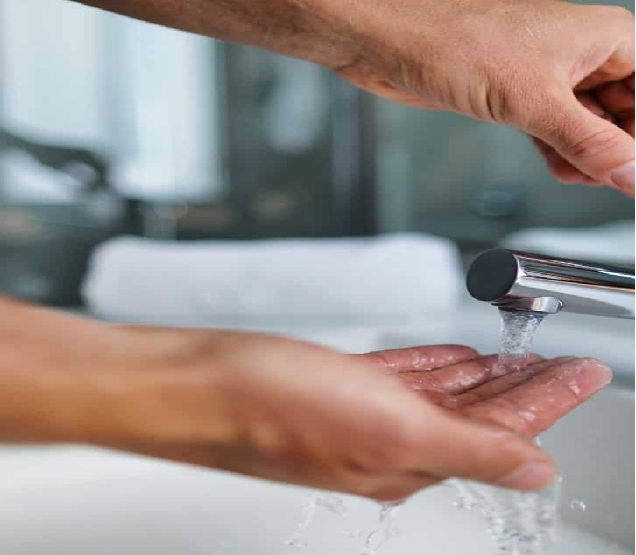Access to clean and safe water is a fundamental human need. As concerns about water quality and the environment grow, the future of water filtration and purification in plumbing is becoming increasingly important. New technologies, advancements in filtration systems, and the integration of smart home technology are shaping the way we ensure clean and healthy water flows into our homes.
As we delve into the advancements shaping the future of water filtration and purification, it’s evident that the demand for high-quality plumbing services becomes increasingly crucial.
So, if you seek top-notch plumbing repair and maintenance services, you can rely on Plumbing Squad for their expertise in optimizing water-related infrastructure. They offer their plumbing services to the major cities in Los Angels, including:
Top-notch plumbing services in Torrance, CA
Professional plumbing services in Compton, CA
Best plumbing services in Carson, CA
Outstanding plumbing services in South Gate, CA
Moreover, this blog post, we will explore the latest trends and innovations in water filtration and purification, along with the advantages, environmental impact, regulations, and challenges associated with their implementation.
New Technologies
The future of water filtration and purification is marked by the development and use of advanced technologies. These technologies aim to enhance the efficiency, effectiveness, and convenience of water treatment processes. One such technology is reverse osmosis, a process that uses a semi-permeable membrane to remove impurities from water.
Nanotechnology is another emerging field that shows great potential in water filtration. Nanofilters can remove even the smallest particles and contaminants, ensuring high-quality drinking water. Additionally, ultraviolet (UV) disinfection and electrochemical water treatment methods are gaining popularity for their ability to effectively kill bacteria and viruses without the use of chemicals.
Advantages of Advanced Filtration Systems
Improved Water Quality
One of the key advantages of advanced filtration systems is the improved quality of water they provide. These systems can effectively remove impurities such as sediments, heavy metals, chemicals, and bacteria, ensuring that the water we use for drinking, cooking, and bathing is clean and safe.
Removal of Contaminants
Advanced filtration systems excel in removing contaminants that may be present in the water supply. These contaminants can include chlorine, pesticides, pharmaceuticals, and microplastics. By removing these contaminants, advanced filtration systems contribute to better overall health and well-being for individuals and communities.
Long-Term Cost Savings
While the initial investment in advanced filtration systems may be higher than traditional filtration methods, they offer long-term cost savings. By providing high-quality filtered water, these systems reduce the need for bottled water or expensive maintenance of plumbing systems. Additionally, they can extend the lifespan of plumbing fixtures and appliances by preventing mineral buildup and corrosion.
Convenience and Accessibility
Advanced filtration systems bring convenience and accessibility to homeowners. With these systems installed in their plumbing systems, homeowners can have easy access to clean and filtered water whenever they need it, without the hassle of purchasing and storing bottled water. This convenience encourages individuals to stay hydrated and promotes healthy habits.
Enhanced Health and Well-being
Access to clean and safe water has a direct impact on our health and well-being. Advanced filtration systems remove harmful contaminants, ensuring that the water we consume is free from potential health risks. Clean water also improves the taste and odor of water, making it more enjoyable to drink, cook with, and use for personal hygiene.
Environmental Impact
The future of water filtration and purification in plumbing also takes into account its environmental impact. Traditional water treatment methods may generate waste and require the use of chemicals, contributing to pollution and environmental degradation.
Advanced filtration systems reduce the reliance on single-use plastic bottles, as homeowners can obtain clean and safe water directly from their taps. This reduction in plastic waste helps to mitigate pollution and conserve natural resources. Additionally, by treating water at the point of use, these systems reduce the energy and resources required for large-scale water treatment plants.
Regulations and Standards
To ensure the safety and quality of water filtration and purification systems, regulations and standards play a critical role. Regulatory bodies establish guidelines and requirements for the design, installation, and maintenance of these systems.
Standards related to water filtration and purification aim to protect public health and ensure that the systems effectively remove contaminants. By adhering to these standards, manufacturers and plumbing professionals can provide assurance to consumers that the systems they install meet stringent quality requirements.
Integration with Smart Homes
The future of water filtration and purification systems lies in their integration with smart home technology. Smart systems can monitor water quality in real-time and provide notifications or alerts when there are issues with the filtration system. This integration allows homeowners to have greater control over their water quality and enables timely maintenance and replacement of filters.
Smart systems can also be programmed to conserve water by optimizing filtration cycles and reducing unnecessary water usage. Integration with voice-activated assistants and mobile applications further enhances user convenience and accessibility.
Cost-Effective Solutions
While advanced water filtration systems may have a higher initial investment cost, there are cost-effective solutions that can be implemented. For example, point-of-use systems that target specific faucets or sources of water can be more affordable than whole-house filtration systems. These systems provide localized filtration where it is most needed, such as in the kitchen for drinking and cooking water.
Additionally, considering the long-term cost savings and environmental benefits, the investment in advanced filtration systems can result in overall cost-effectiveness for homeowners.
Education and Awareness
Promoting Water Education in Schools
Education plays a crucial role in creating awareness and promoting the importance of water filtration and purification. Integrating water education into school curricula can help children understand the need for clean water and instill sustainable water practices from an early age. By educating future generations, we can foster a culture of responsible water use and conservation.
Public Awareness Campaigns on Water Filtration
Public awareness campaigns can inform and educate communities about the benefits of water filtration and purification. These campaigns can highlight the potential health risks associated with contaminants in untreated water and emphasize the importance of investing in advanced filtration systems. By raising awareness, individuals can make informed decisions about their water quality and take steps to protect their health and the environment.
Training Programs for Plumbing Professionals
To ensure the effective installation and maintenance of advanced filtration systems, plumbing professionals need specialized training. Training programs can equip plumbers with the knowledge and skills to properly assess water quality, recommend suitable filtration systems, and perform installations and repairs. By investing in professional training, the plumbing industry can ensure the highest level of quality and expertise in water filtration and purification.
Educational Resources for Homeowners
Providing educational resources for homeowners is essential in promoting the adoption of advanced filtration systems. These resources can include guides on water contaminants, best practices for filtration system maintenance, and tips on optimizing water usage. By empowering homeowners with knowledge, they can make informed choices about their water filtration needs and contribute to a safer and healthier living environment.
Collaboration with Public Health Organizations
Collaboration between water filtration industry stakeholders and public health organizations is vital in addressing water quality challenges. By working together, these organizations can develop comprehensive strategies, share research findings, and implement initiatives that prioritize public health and environmental sustainability. Through collaboration, we can overcome the challenges in providing clean and safe water for all.
Challenges in Implementation
While the future of water filtration and purification holds great promise, there are challenges that need to be addressed for successful implementation.
One challenge is the initial cost of installing advanced filtration systems. The higher upfront investment may deter some homeowners from adopting these systems. However, as awareness of the long-term cost savings and health benefits increases, the demand for advanced filtration systems is expected to grow.
Another challenge is the need for regular maintenance and replacement of filters. Homeowners must be aware of the maintenance requirements and schedule periodic filter replacements to ensure the continued effectiveness of the filtration system.
Lastly, ensuring equitable access to advanced filtration systems is a challenge that needs to be addressed. Economic disparities may limit access to these systems for some communities. Public-private collaborations and government initiatives can help bridge this gap and ensure that clean and safe water is accessible to all.

